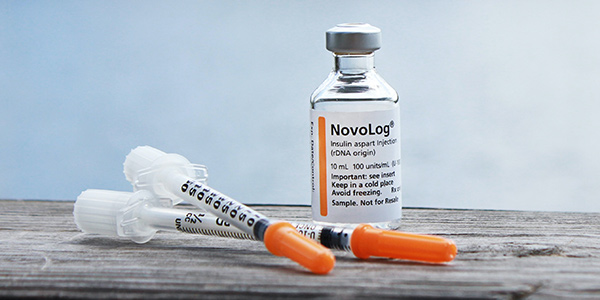Insulin resistance can often be an early warning sign that you’re at risk of developing diabetes.
Because of this, it’s a good idea to try to control your insulin levels before it becomes something more serious.
Semaglutide has been used as a treatment for type 2 diabetes for several years now.
Because of this, many people with insulin resistance have wondered whether they’d benefit from taking it.
There is a fair amount of evidence to suggest that Semaglutide would decrease insulin resistance.
This evidence mostly comes from the SUSTAIN 1-3 trials that were carried out whilst the drug was going through testing.
Results from the trials showed that Semaglutide “demonstrated superior reductions in body weight and decreased insulin resistance vs comparators” (other diabetes treatments).
Unfortunately, Semaglutide isn’t available on the NHS for insulin resistance.
You can only get it through your doctor if you have type 2 diabetes.
However, Semaglutide can be prescribed off-label for weight loss in some patients who meet a specific set of conditions.
It does this by making you feel fuller for longer, therefore reducing your appetite.
As obesity is also closely linked to insulin resistance, weight loss also helps to improve it.
If you’re obese and find that you struggle to lose weight through lifestyle changes alone, semaglutide or other similar treatments might be helpful for you.
Not only can it help you to lose weight, but it could also improve your insulin resistance.
However, Semaglutide is not licensed as a treatment for weight loss in the UK at the moment, so it can only be prescribed off-label if your prescriber thinks it is a suitable treatment after an in-depth consultation.
Semaglutide can help to decrease insulin resistance in several ways.
We’ve already talked about how it may be able to aid weight loss, but as the drug was originally developed for diabetes, it also helps in other ways.
Insulin helps your body to prepare to take in glucose from your blood.
When this doesn’t happen properly, it usually means that your body isn’t producing enough insulin or that you’re resistant to it.
Semaglutide can reduce the amount of sugar that’s secreted by your liver, as well as stimulate the production of more insulin when your body needs it.
Whilst Semaglutide isn’t a type of insulin, it can certainly help to balance out blood glucose and insulin levels.
If you’re wondering if you have insulin resistance, some of the symptoms to look out for include:
- Tiredness
- Increased hunger or thirst
- Difficulty concentrating
- Increased abdominal fat
- Acanthosis nigricans – dark velvety patches of skin in the folds of your body.
Unfortunately, doctors don’t usually test for insulin resistance, even if you suspect it.
However, they’ll usually request a blood test to check your glucose levels.
This is to make sure that you don’t have diabetes.

















